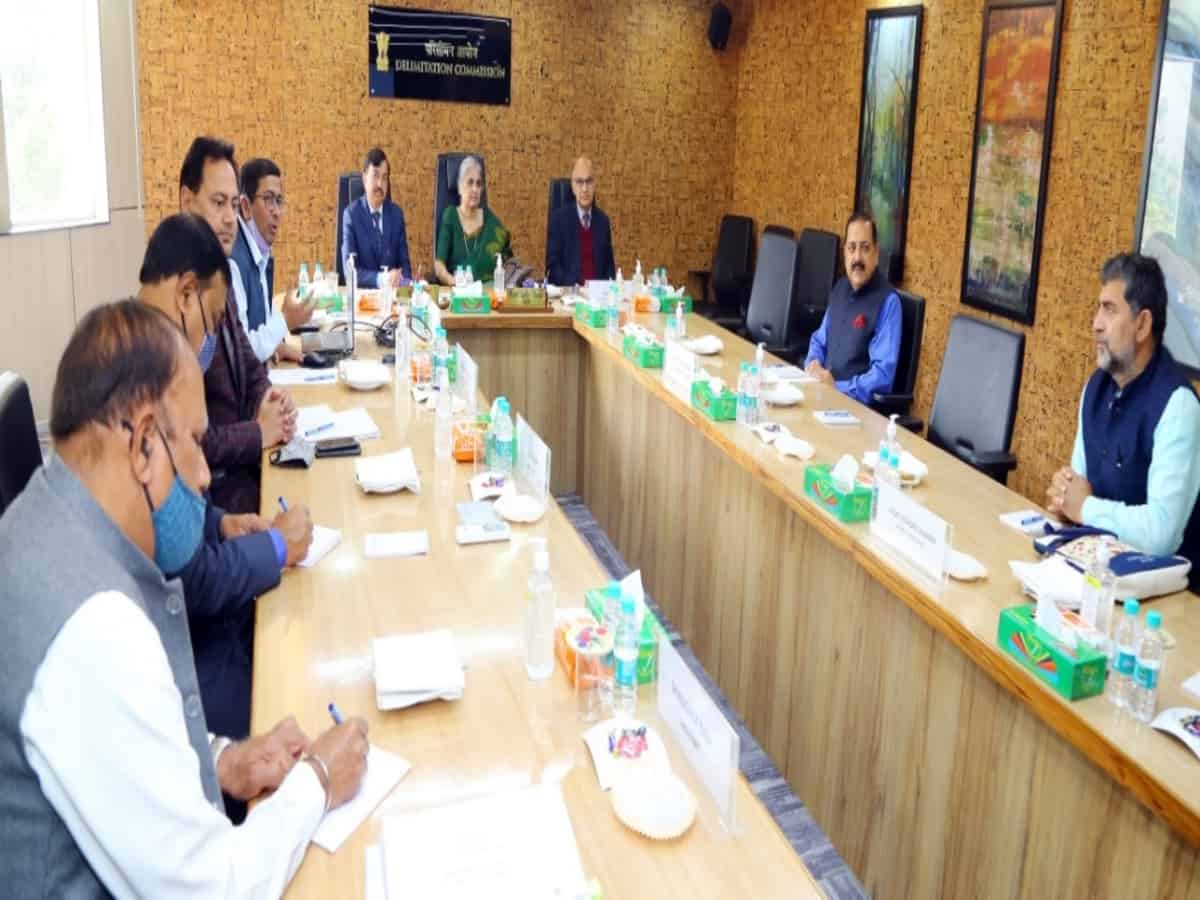
Kashmir’s regional parties , including those considered close to Delhi, have resented the recommendations of the Delimitation Commission’s draft report , where it has allocated six seats to Jammu region , and one to the Valley. Their anger stems from the fact that the essential criteria of determining the number of seats for the legislative bodies in any state or the union territory is population , and they have cited the fact that the Valley is population, as per 2011 census , is higher than that of Jammu region, so it deserved a bigger share . They are particularly angry because the draft report has added more eats to the Hindu dominated parts of Jammu region , which, inevitably increase political decision-making power of the region that until the last elections served as a second fiddle to the Valley dominated politics.
The Delimitation Commission, ever since it was constituted in March 2020, had raked up several controversies. Some of the voices in Jammu, too, had raised objections to the Commission basing its recommendations on the basis of the 2011 Census that placed Jammu’s population a little over 5.3 million , while the Valley’s population figures were above 6.9 million , thus having a gap of 16 lakh . In the erstwhile state legislative assembly, dissolved in November 2021, the Valley had 46 seats, Jammu, 37 and Ladakh ,4,. With the reorganization of the state and its bifurcation into the union territories of Ladakh and J&K ,it was stated that Ladakh will have no legislative Assembly, but J&K’s assembly would have enhanced number of seats. The Valley parties were incensed because the Delimitation Commission for J&K came into being when the rest of the country was to hold it in 2026.
National Conference vice president and former chief minister Omar Abdullah pointed out that in August 2019, when the special status of J&K was abolished , it was stated that “ J&K has been brought at par with the rest of the country.”, and then he argued , “ if one nation, one constitution is the theme, why J&K was treated differently” Now he said, it has become clear that there was a purpose behind this selective approach , the census was ignored , and some other criteria was adopted to fulfill the partisan agenda of the ruling BJP.
People’s Democratic Party chief Mehboob Mufti who also is former chief minister of the erstwhile state of J&K, had declared from the very beginning that the “ Delimitation Commission was constituted to fulfill BJP’s agenda.” Hers was the only party that had boycotted the Delimitation Commission, when it visited Valley and Jammu , in July this year. After having heard about the recommendations of the Commission, she observed : “ it was to make people fight one another. This has sown fresh seeds of divisiveness, communal and regional confrontation.”
People’s Alliance for Gupkar Declaration, named after the Gupkar road, the powerhouse of politics of yesteryear , where Abdullahs and Muftis live., has decided to launch a peaceful protest against the recommendations of the Commission, in its draft report. The Alliance was formed to fight for the restoration of Article 370 and the reunion of the two union territories into state as it existed on August 4, 2019. It was split into two UTs next day.
Intriguingly , the Valley’s politicians are looking at the recommendations of the Commission , through the Kashmir-specific lens, and not the seven seats in all for the whole of the union territory . They have made it Valley versus Jammu issue , Muslim majority versus more power to Hindu parts of the UT , particularly in the UT. The PAGD has called it “ divisive and communal.”
Their argument is that the majority of the population should have got more seats out of the seven added to the Assembly by the Commission . They have also pointed out that their 46 seats in the former legislative Assembly were as per the population calculated in 1980s, and the 2011 census entitled them to more constituencies than one out of the seven seats at stake. They rule out the counter argument that Jammu was discriminated against in the previous delimitation exercises, and suggest then the whole exercise should have been undertaken after the fresh round of census.
Tempers are rising and the debate is adding new strains between the relations of he two regions , and the recommendations are being viewed with deep political and communal suspicions . This is because , the Delimitation Commission has not made public its criterion for recommending what it did.
Arun Joshi is a Senior Journalist, Political Analyst based in Jammu and Kashmir. He has authored four books, including, “Eyewitness Kashmir: Teetering on Nuclear War”. He has worked with Hindustan Times, The Times of India, The Indian Express and The Tribune.
Views expressed are personal

